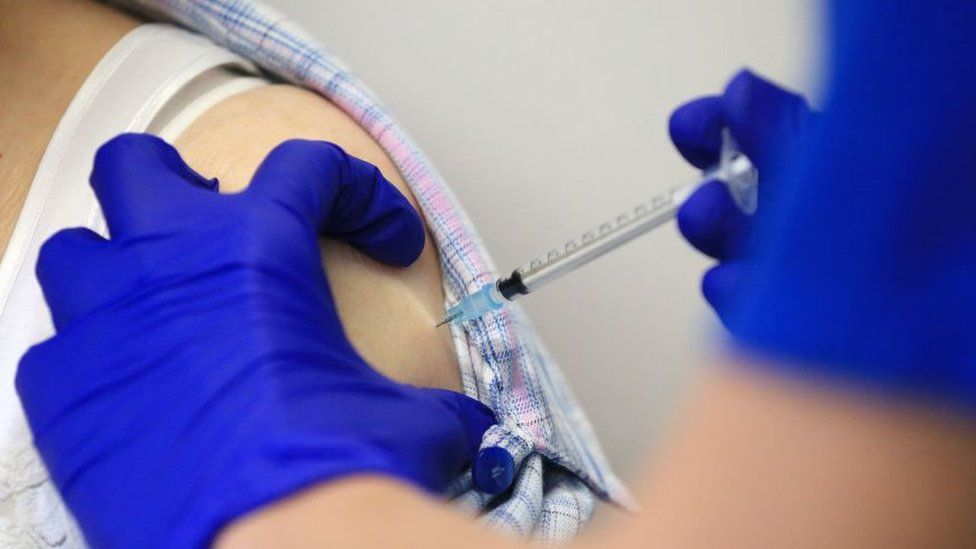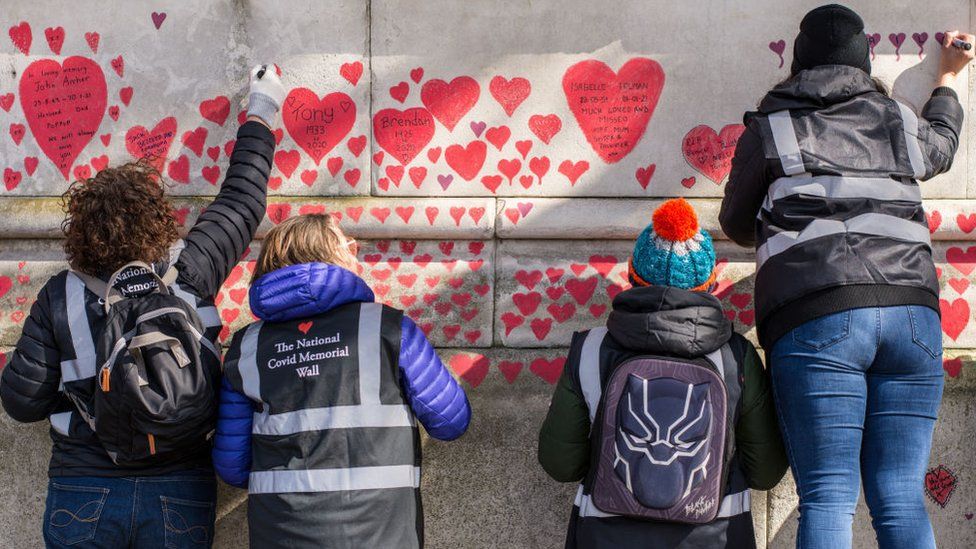Who can get a Covid booster this spring?
Published2 days agoShareclose panelShare pageCopy linkAbout sharingImage source, Getty ImagesBy Jennifer ClarkeBBC NewsA spring Covid booster is being offered to those most at risk from the virus across the UK. Some pharmacies have also started selling the jab privately. Who can have a spring Covid booster?Fewer people are entitled to a spring booster than were offered a jab during the autumn campaign. The eligible groups are:adults who will be aged 75 years and over by 30 June 2024people in care homes for older adultsindividuals aged six months and over who are immunosuppressedVaccines will be available at pharmacies, GP practices and some drop-in vaccination centres. How do I book a spring booster? The NHS is sending texts, emails, NHS App messages or letters to those who are eligible but you do not have to wait for the invite.Those who qualify can book an appointment via the NHS App, the NHS website, by calling 119, or by visiting a drop-in clinic. Those at highest risk are being invited first.You will generally be invited to have your booster around six months after your last dose but you can have it after three months. Spring vaccinations will be available until 30 June. NHS England: Covid vaccinationNHS Scotland: Covid vaccinationPublic Health Wales: Covid vaccinationNI Direct: Covid vaccinationWhich vaccine will people get?Vaccines from four different companies are in use across the UK: Pfizer-BioNTech, Moderna, Sanofi/GSK and Novavax. Those getting the spring booster will be given an mRNA vaccine made by either Pfizer or Moderna. Both have been updated to help protect against more recent strains of Covid. People are advised to take whichever they are offered, as all provide protection against severe illness or death.Covid vaccine safety – What we knowWhat if I have not had a Covid jab before?If you meet the criteria for a booster but have not had either of the first two doses of the vaccine – or a third dose for those with a weakened immune system – the government recommends getting a jab during the 2024 spring campaign.Similarly, if you qualify but missed an earlier booster dose, you can have another jab this spring to catch up. If you have a severely weakened immune system, your doctor may advise you to have an extra dose three months after the spring booster.Covid jab skipped by 44%, entire UK study findsImage source, Getty ImagesCan I buy a Covid vaccine? A number of high street chemists and private clinics have started selling and administering the Pfizer Covid vaccine directly to the public. They range in price from around £45 to £99. You need to be aged 12 or above, and have not had a Covid vaccine in the previous three months. You also need to talk to a health professional to check that it is suitable. A protein-based booster vaccine made by Novavax, which works differently to the Pfizer and Moderna jabs, should also be available to buy soon. Moderna is also hoping to launch a combined flu and Covid vaccine in 2025.How long after having Covid can I have a jab?If you have Covid, or think you might, NHS advice is to delay vaccination until you feel better.It also recommends waiting if you have a high temperature or feel otherwise unwell with any illness. But there is no need to wait if you have recently recovered from Covid and feel well. The vaccines do not infect people with Covid and cannot cause positive test results. What to do if you have CovidWhy Covid is still flooring some peopleWhat are the side effects of the Covid vaccine?For most people, side effects are mild. The most common include a sore arm, headache, chills, fatigue and nausea.They are part of the body’s normal immune response to vaccination and tend to resolve within a day or two.This video can not be playedTo play this video you need to enable JavaScript in your browser.Very rarely myocarditis – inflammation of the heart muscle – has been linked to the Moderna and Pfizer vaccines.It has also been listed as a rare possible side effect of the Novavax vaccine, after a very small number of cases were reported during clinical trials.There have also been extremely rare, but occasionally fatal, cases of people developing blood clots after taking the AstraZeneca vaccine.A very small number of people have experienced a severe allergic reaction after the Pfizer vaccine.Patients with serious allergies should talk to their healthcare professional before being vaccinated. German patient vaccinated against Covid 217 times
Read more →

